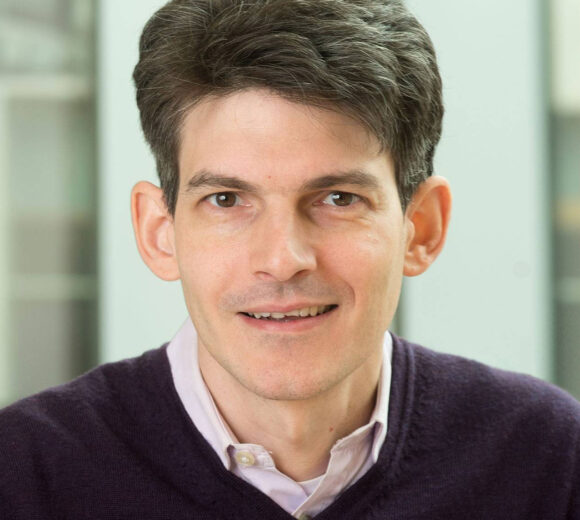Events
Luciano Marraffini, Rockefeller University

Talk description to come.
Register for the Livestream
About the Speaker
From the website of the Vilcek Foundation.
Luciano Marraffini receives the Vilcek Prize in Biomedical Science for uncovering the molecular mechanisms by which CRISPR-Cas systems provide bacteria with adaptive immunity against viral infections, and for his investigations into applications of CRISPR-Cas for genome editing.
Born and raised in Rosario, Argentina, Marraffini was passionate about science from a young age. He obtained a degree in biotechnology in Rosario before moving to Chicago to pursue his doctoral studies. In the laboratory of Olaf Schneewind at the University of Chicago, he undertook research on sortase, an enzyme that anchors surface proteins to the cell wall of Gram-positive bacteria.
After completing his PhD, Marraffini worked in Erik Sontheimer’s laboratory at Northwestern University. It was in Sontheimer’s lab where Marraffini began his arc of pioneering research on CRISPR-Cas systems. Using bacterial genetics, his research revealed that CRISPR-Cas immunity relies on the sequence-specific destruction of DNA to counteract foreign invaders. His findings have been instrumental in advancing the understanding and further studies of these systems.
In 2010 Marraffini joined the faculty at The Rockefeller University, where he has continued his research on CRISPR-Cas immunity. In 2012, his work culminated in the development of CRISPR-Cas9 technologies, which enabled genome editing in both bacteria and human cells.
At The Rockefeller University, Marraffini’s laboratory strives to elucidate the mechanisms underlying CRISPR-Cas immunity in bacteria, with an emphasis on understanding these systems at the molecular level.
In addition to his work with The Rockefeller University, Marraffini was appointed Investigator by the Howard Hughes Medical Institute in 2018; in 2019 he was elected to the National Academy of Sciences.
“CRISPR technologies are advancing. It is my biggest aspiration to see these technologies develop into cures for diseases,” says Marraffini.



